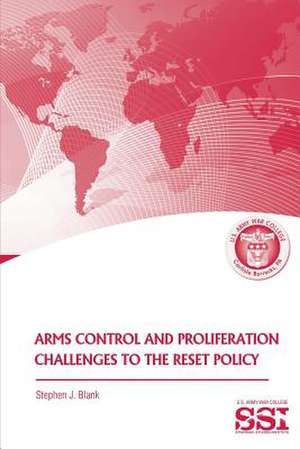Arms Control and Proliferation Challenges to the Reset Policy
Autor Stephen J. Blanken Limba Engleză Paperback
Preț: 96.98 lei
Nou
Puncte Express: 145
Preț estimativ în valută:
18.56€ • 19.31$ • 15.55£
18.56€ • 19.31$ • 15.55£
Carte disponibilă
Livrare economică 21 februarie-07 martie
Preluare comenzi: 021 569.72.76
Specificații
ISBN-13: 9781470071462
ISBN-10: 1470071460
Pagini: 130
Dimensiuni: 152 x 229 x 7 mm
Greutate: 0.18 kg
Editura: CREATESPACE
ISBN-10: 1470071460
Pagini: 130
Dimensiuni: 152 x 229 x 7 mm
Greutate: 0.18 kg
Editura: CREATESPACE
